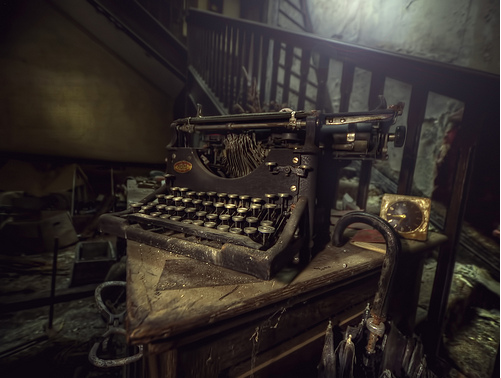TW Column by Steven Lewis
How Do You Deal With Wounded Pride?
Sometime back in the last century, one of the slick newsstand magazines killed a story of mine that they had previously accepted and held for nearly a year. I responded like the middle-aged teenager that Charlie Sheen has come to personify as the American Adult Male of the New Millennium: honking my horn, cursing, snapping at my kids, sulking when my wife didn’t exhibit the proper regard for my angst.
Call it hubris, neurotic pride, or just plain arrogance: My fury had little to do with the worth of the article itself (in retrospect, it was formulaic and uninspiring), only with the insult to my expansive notions of myself as gun-slinging “Steve Lewis, Writer For Hire.” I mean, how dare they?
That evening, I sat alone in the darkened living room, abandoned by family, scorned by the dog, nursing a jam jar of Jim Beam. I simply could not wrap my mind around the fact that something that was “So good, Steve!” in August had been transformed into literary garbage by May of the following year. The articles editor had explained blithely that the new editor in chief wasn’t “won” enough.
I bitterly recalled the words of Emily Dickinson:
Fame is a bee.
It has a song—
It has a sting—
Ah, too, it has a wing.
I swore—albeit like one of the little kids refusing to eat—that I was going to quit writing and get a real job (not that I didn’t already have one that paid the mortgage and provided health insurance for my family). Writing was all vanity and vexation. I quit!
And I quit.
And the following morning, I awoke on the couch with a remarkably flexible neck, sensation in my fingertips, and a kind of enthusiasm for writing I hadn’t felt since my first chapbook was published by New Erections Press (Madison, Wisconsin, 1969, of course). Despite my shameful behavior from the night before and the considerable loss of exposure and income, I felt mysteriously unburdened by the whole episode. Simply put, I didn’t feel beaten or humiliated, and the urge to poke out my eyes had passed into the night.
I realized on that warm and humid morning, the house beginning to buzz with the movement of seven children, a bee hovering over a lilac near the screen, that I could actually quit writing and not instantly age, wither, and die. So I quit writing for the second time in twelve hours and wrote like crazy all day.
Nearly a year later, I was eating dinner with relatives at the Sullivan-MacDougal Gardens in New York’s Greenwich Village, an unusually civilized oasis of Federal homes between Houston and Bleecker Streets. Its interior garden, accessible only from rear doors of the row houses on Sullivan and MacDougal, is designed and actually functions to protect inhabitants from the vagaries of cosmopolitan life.
From Digging Day in May—when the communal lawn is seeded—to Christmas Eve caroling and then on to Digging Day the following May, children ride trikes on the bluestone path, play in the sandbox, and shoot hoops, while adults watch benevolently from benches or walk around like characters in Impressionist paintings, gazing at serenely beautiful plantings in each of the small private patios.
From the patio of my sister-in-law’s place, I gazed through the privet hedge to the double building that Bob Dylan owned and inhabited in the early seventies. Ample public evidence to the contrary, I still think of him as the boyish face on the Freewheelin’ cover, walking up Jones Street with a long-haired girl clinging to his arm. Yet, he is in his early seventies now, arguably more ornery and unyielding and prideful than ever.
Sitting in that wonderful garden, I recalled the story my in-laws had told me of how Dylan built a tall brick wall to keep neighbors from intruding upon his much-valued, maligned, and intruded-upon privacy. The problem was that the Sullivan-MacDougal Gardens had covenants restricting the height and manner of fencing, and Dylan had violated both. After several warnings from the Board, and no response from their famous neighbor, several men in the community used sledgehammers to beat the wall to the ground.
As an aside, I have long laughed at Dylan’s line “The wind howls like a hammer” (“Love Minus Zero, No Limit”) and have even quoted it to students as an example of an outrageously asinine simile. But sitting on my sister-in-law’s patio, imagining Dylan’s humiliation and rage upon waking the next morning and seeing the rubble in his small backyard, I suddenly heard the hammer and the bricks and the wind, and it was all the same howl.
Indeed, I heard that howl and hummed the line “She knows there’s no success like failure, and that failure’s no success at all” all afternoon, the tune trailing me up West Side Drive and over the George Washington Bridge, returning with me upstate to the Shawangunk Mountains and the classroom and the computer through the following fall term.
And so I howled like a hammer, prideful bricks flying all over my cluttered attic aerie, when I received yet another “kill” note that winter from another editor at another big-time magazine saying something about another new editor “going in a different [another] direction.”
In that cold and self-loathsome moment, snow fluttering off the roof, I heard what might have been called a crack in the cosmic egg and, looking out the frost-covered window, recalled the men with sledgehammers tearing down Dylan’s wall.
A few moments later, I quit writing for the third time in my life.
And, thus free once again from blinding ambition, I wrote like crazy the entire day.
Fifteen years later, little has changed in the Success and Failure Department at stevelewiswriter.com. I am still too prideful. Still howling like a hammer several times a year. Still quitting every time I stop howling. And still writing. Always writing. And never better than when I have been knocked off the damn wall.
Publication information
- Emily Dickinson, “Fame is a Bee”
- Bob Dylan, "Love Minus Zero, No Limit"
Steven Lewis is a contributing writer and columnist at Talking Writing.
He sent in this piece with the following note: “I submit this preemptive resignation on a muggy June morning, computer buzzing like a rusted hand pump in the back field, imperious fame soaring out of sight.” As you can see, we accepted his column—but not his resignation.
The photo above is (in Steve’s words) “a recent view of the post-howling writer at work, down on Hatteras Island.”



